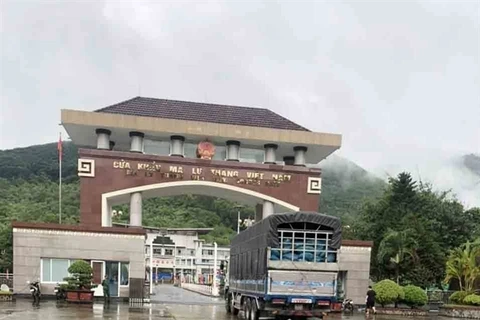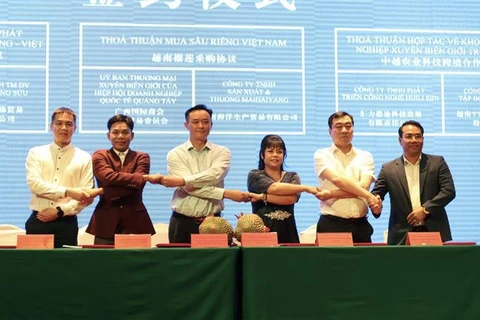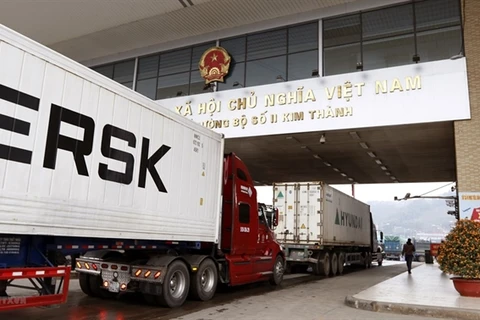Hanoi (VNA) - The Ministry of Industry and Trade (MoIT) is collecting opinions on amending and supplementing a number of articles of Decree No. 14/2018/ND-CP detailing border trade activities in order to speed up the shift to official export.
Experts said 2023 marks the recovery of customs clearance activities after a long hiatus due to the COVID-19 pandemic.
Many sectors benefited when China gradually eased pandemic prevention measures. Economic activities fully resumed from the second quarter of 2023, especially for businesses operating in aviation, and exporting seafood cement, rubber, steel, and rice.
However, cross-border trade and export activities, especially with the Chinese market, will face many difficulties and challenges. Therefore, encouraging businesses to shift to official export will help businesses meet the requirements of the Chinese market.
According to Nguyen Lam Vien, Chairman of the Board of Directors of Vinamit JSC, tightening small-scale exports will pose short-term challenges for small businesses, but in the long term, this will be beneficial to Vietnam's agricultural export activities.
Tran Thanh Hai, deputy director of the Import-Export Department under the Ministry of Industry and Trade (MoIT) said a project to shift small-scale export to official cross-border trade between Vietnam and China is still in the drafting process.
Along with gradually reducing unofficial export activities, the MoIT has also coordinated with other ministries and sectors in helping businesses successfully transform.
Businesses need to ensure that their products meet the requirements and regulations regarding food safety, growing area codes, packaging facility codes, and labeling, Hai said.
He also underlined the necessity for relevant ministries, sectors and localities to expand and upgrade logistics infrastructure and facilities in border gates to facilitate official export clearance operations.
Businesses are advised to proactively partner with larger traders and distribution chains in China.
To Ngoc Son, deputy head of the MoIT's Asia-Africa Market Department, said localities and management agencies ought to develop a strategy for industry and brand development in parallel with developing concentrated and large-scale specialised production areas in response to market signals.
Businesses should also focus on building and protecting their brands, conducting market surveys and training human resources, and seeking more export opportunities through e-commerce platforms, Son said./.

























